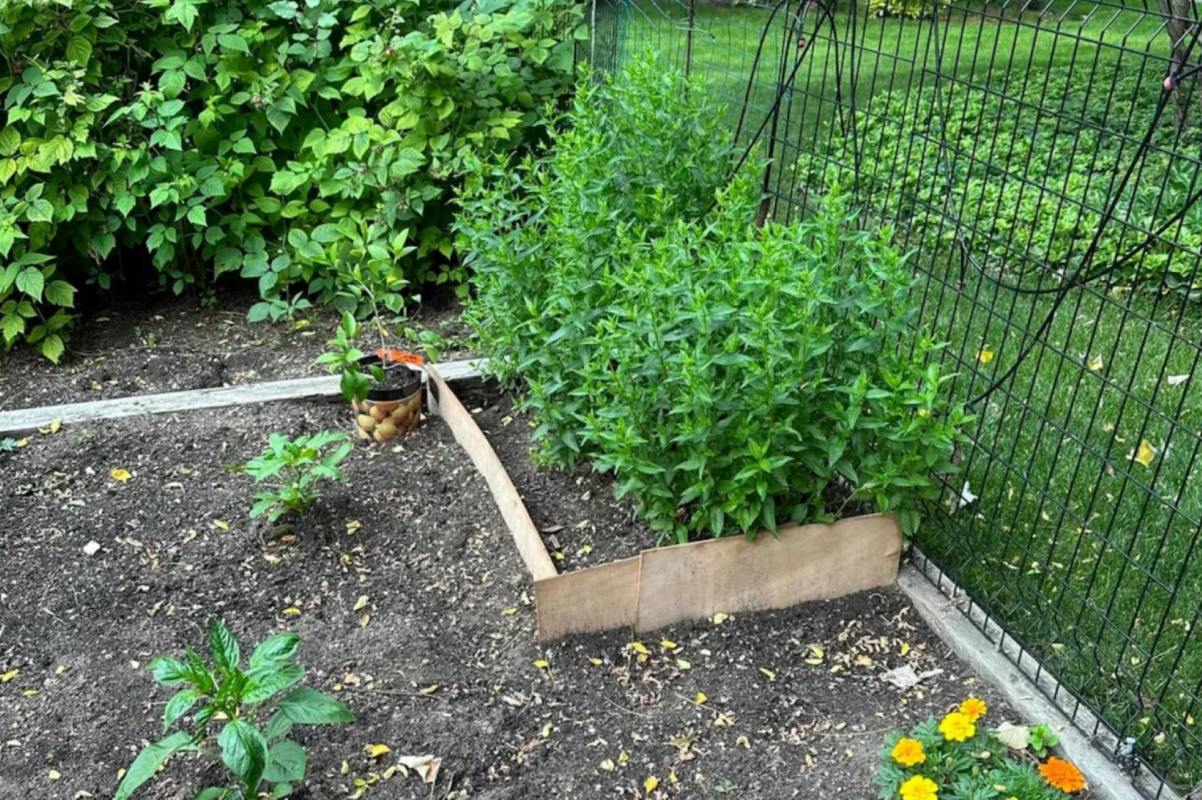In a Reddit post in the subreddit thread r/gardening, a user posted a photo of mint planted in their father's garden. The user wrote sarcastically, "But don't worry! He 'sectioned it off!'"
You might wonder, what's wrong with planting mint straight into the ground of your garden? Well, mint and many of its plant relatives (including catnip) are invasive plant species. If not planted alone in isolated pots and planters, they will invade.
Mint and other invasive species are types of non-native plants that can thrive and wreak havoc on the existing native species when put in a foreign ecosystem. What's more, mint has the ability to suppress the growth of competing plant neighbors, according to a research article in Frontiers scientific journal.
The article explains how "plants have developed mechanisms to defend and adapt themselves against biotic and abiotic stress factors," hence why mint plants will produce oils that can inhibit the growth of other plants around them, in a process called allelopathy.
The potential threat to native species from mint emphasizes the importance of planting native species in your garden and lawns to ensure a healthy and thriving ecosystem. There are many small steps you can take toward achieving a natural lawn. Examples of this include spreading clover seeds to maintain a green cover while supporting pollinator populations.
Another way to boost your native ecosystem is by creating a tapestry lawn — which is made up of low-growing color flowers and plants that are all native to the area. Not only are tapestry lawns beautiful, but having a variety of plant species also helps improve biodiversity.
Natural lawns also help conserve water and money, saving an estimated 1,500,000 gallons of water and $3,150 over ten years.
Commenters on the Reddit post immediately understood the mistake that the OP's father had made.
One user commented, "The other week I planted some lemon balm — found out it's in the mint family and immediately dug it back up and put it in a pot. Smells great tho!"
"RIP garden," joked another user.
Join our free newsletter for easy tips to save more, waste less, and help yourself while helping the planet.









